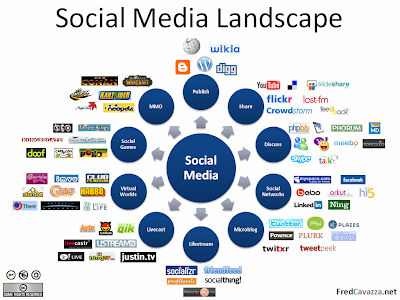Question 1: How do we represent ourselves online?
The way you represent yourself online depends upon the level of technology you integrate into your life. One would hope that an online representation would model that of our actual real life selves. For example, we choose avatars and usernames that resonate with who we are. We seek out information and entertainment that pertains to our desires and interests.
While many use the Internet to branch out as themselves online, others may be taking a different approach. Some use the Internet for role-playing games, alternate lives, anonymous forums, and other outlets that provide anonymity and personal expression. I believe that it all boils down to networking, information, and using the internet as a tool to express your passions and communicate with the rest of the world.
For more information about my feelings on online representation and identity formation please visit my week 1 journal link: Perceptions
Question 2: How do we shape our ability to critically evaluate the credibility of information available online?
The ability to evaluate the credibility and validity of the information available online is a process that now begins in childhood. For those of us who did not grow up with computers, we may have had to acquire these skills independently in adulthood. These days, schools should instruct students on ways of analyzing the information and images they gather from the Internet. Modern day students are growing up in technology rich environments and are very comfortable consuming, generating, and collaborating using technology. It is up to educators like myself to instruct youth on how to navigate these complex media environments safely and successfully.
Tasha Bergson-Michelson’s MindShift article, “Building Good Research Skills: What Students Need to Know,” (2012) explains the information and research gap today’s students are facing. Students are lacking research skills and have abandoned scholarly databases in favor of search engines. You can’t really blame the students though because they don’t know any other way. They are a Google-happy generation. Any problem they have, just Google it! This however, has led them into some serious scholarly trouble.
The solution needs to be a revised method of teaching media literacy and information evaluation at a younger age. It is important for teachers to stress the use of multiple resources as one source may lead to another. Students need to learn to intertwine several types of resources. For example, some teachers turn their noses up at Wikipedia however, the reference links listed at the bottom of a wiki can lead to some excellent primary sources with a little hunting.
Teachers must also ask students to reflect on why they chose to click on one link over another. When using the Web together as a class, teachers can also demonstrate how to look for a definition of an unfamiliar word (Bergson-Michelson, 2011). The article also provided a 3-tiered scaffold approach to teaching research to students.
The Steps of the Research Process:
- Inquiry: The free exploration of a broad topic to discover an interesting avenue for further research. (open ended web search)
- Literature Review: Seek points of authority on a topic, and pursue and identify the range of theories and perspectives on the subject. (Bibliographies, blog posts, and various traditional sources)
- Evidence-Gathering: Look for both primary- and secondary-source materials that build the evidence for new conclusions.
Lastly, it is important that students know what information they are looking for before they go crawling the web. Before performing a web search they should ask themselves what they expect to find and identify what they are looking for specifically. “What students need to be competent at is identifying the kind of source they’re finding, decoding what types of evidence it can appropriately provide, and making an educated choice about whether it matches their task,” (Bergson-Michelson, 2011). It is of the utmost importance that students understand and implement a varied approach and a critical eye when researching and evaluating information read on the Internet.
References:
Bergson-Michelson, T. (2012) Building good research skills: What students need to know. Retrieved from http://mindshift.kqed.org/2012/03/building-good-search-skills-what-students-need-to-know/
References:
Bergson-Michelson, T. (2012) Building good research skills: What students need to know. Retrieved from http://mindshift.kqed.org/2012/03/building-good-search-skills-what-students-need-to-know/










